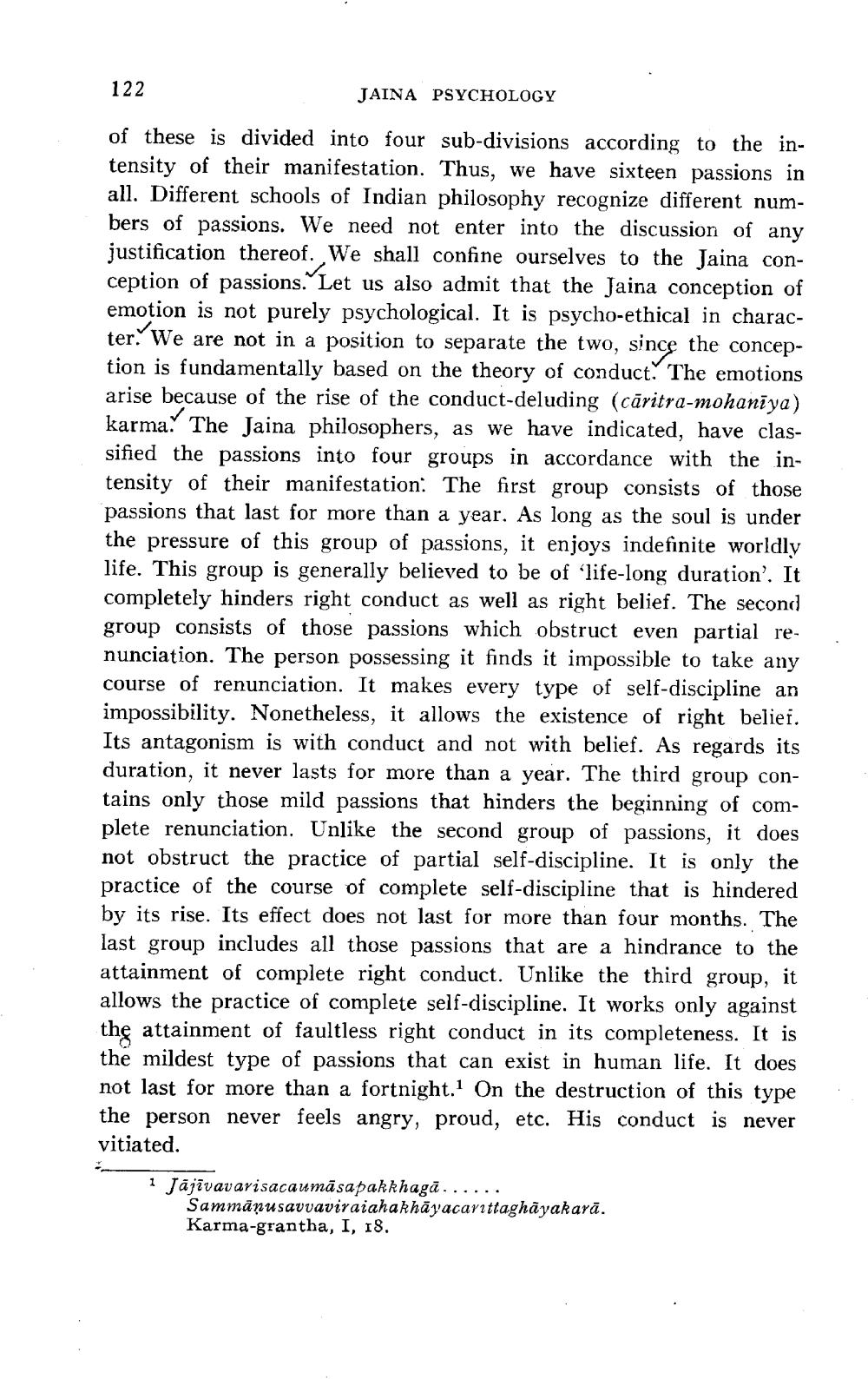________________
122
JAINA PSYCHOLOGY
of these is divided into four sub-divisions according to the intensity of their manifestation. Thus, we have sixteen passions in all. Different schools of Indian philosophy recognize different numbers of passions. We need not enter into the discussion of any justification thereof. We shall confine ourselves to the Jaina conception of passions. Let us also admit that the Jaina conception of emotion is not purely psychological. It is psycho-ethical in character. We are not in a position to separate the two, since the conception is fundamentally based on the theory of conduct. The emotions arise because of the rise of the conduct-deluding (caritra-mohaniya) karma. The Jaina philosophers, as we have indicated, have classified the passions into four groups in accordance with the intensity of their manifestation: The first group consists of those passions that last for more than a year. As long as the soul is under the pressure of this group of passions, it enjoys indefinite worldly life. This group is generally believed to be of 'life-long duration'. It completely hinders right conduct as well as right belief. The second group consists of those passions which obstruct even partial renunciation. The person possessing it finds it impossible to take any course of renunciation. It makes every type of self-discipline an impossibility. Nonetheless, it allows the existence of right belief. Its antagonism is with conduct and not with belief. As regards its duration, it never lasts for more than a year. The third group contains only those mild passions that hinders the beginning of complete renunciation. Unlike the second group of passions, it does not obstruct the practice of partial self-discipline. It is only the practice of the course of complete self-discipline that is hindered by its rise. Its effect does not last for more than four months. The last group includes all those passions that are a hindrance to the attainment of complete right conduct. Unlike the third group, it allows the practice of complete self-discipline. It works only against the attainment of faultless right conduct in its completeness. It is the mildest type of passions that can exist in human life. It does not last for more than a fortnight.1 On the destruction of this type the person never feels angry, proud, etc. His conduct is never vitiated.
1 Jäjivavarisacaumā sapakkhagā.. Sammāņusavvaviraiahakhayacarittaghāyakarā. Karma-grantha, I, 18.




